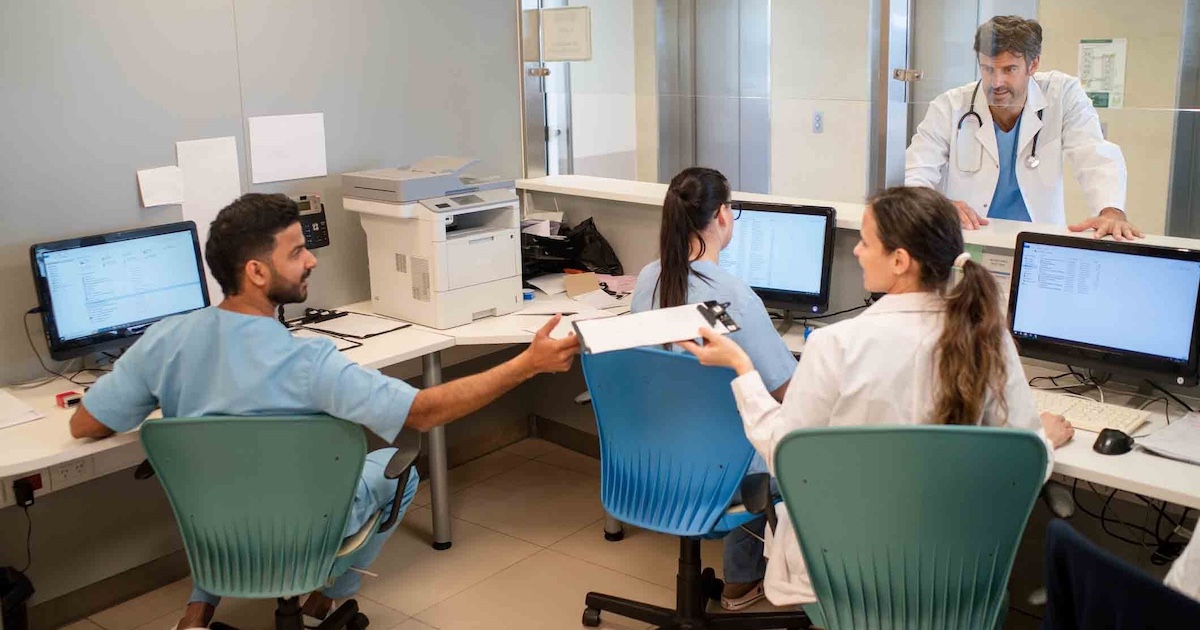Developers of what's being touted as the first FDA-approved autonomous navigation remote presence robot are ready to deploy it in hospitals throughout North America.
Earlier this month, the Food and Drug Administration gave 510(k) clearance to the RP-VITA, developed jointly by iRobot Corp and InTouch Health.
The RP-VITA (Remote Presence Virtual Independent Telemedicine Assistant) combines autonomous navigation and mobility technologies developed by iRobot with telemedicine and electronic health record integration developed by Goleta, Calif.-based InTouch Health. Officials say it allows remote doctor-to-patient consults, ensuring physicians have access to the necessary clinical information where and when they need it.
The robot is able to map its own environment and uses an array of sensors to autonomously move about a busy space without interfering with people or other objects, officials say. Its iPad interface allows a doctor to visit a patient, and communicate with hospital staff and patients with a single click, regardless of their location.
Yulun Wang, chairman and CEO of InTouch Health, and Collin Angle, chairman and CEO of iRobot, showed off the RP-VITA during the Digital Health Summit at the 2013 International CES on Jan. 9-10 in Las Vegas, shortly after the FDA granted its approval. At CES, Wang said the robot would soon be deployed in several hospitals throughout the United States, Canada and Mexico.
"FDA clearance of a robot that can move safely and independently through a fast-paced, chaotic and demanding hospital environment is a significant technological milestone for the robotics and healthcare industries," Angle said in a Jan. 8 press release announcing the FDA approval.
"There are very few environments as difficult to maneuver as that of a busy ICU or emergency department," he added. "Having crossed this technology threshold, the potential for self-navigating robots in other markets, and for new applications, is virtually limitless."
FDA clearance means RP-VITA can be used for active patient monitoring in pre-operative, peri-operative and post-surgical settings such as cardiovascular, neurological, prenatal, psychological and critical care assessments and examinations.
“RP-VITA raises the bar for acute care telemedicine solutions for patient care delivery. The robot allows me to effortlessly follow the entire clinical workflow process, and puts me at the point of care precisely when and where I need to be,” said Paul Vespa, MD, director of neurocritical care for the UCLA Health System and associate professor of neurosurgery and neurology at the UCLA School of Medicine, in the press release. “As a thought-leader in today’s challenging health care environment, we at UCLA are very pleased to have participated in the clinical development and validation of this revolutionary health care delivery platform.”
"Remote presence solutions have proven their worth in the medical arena for quite some time," said Wang in the release. "RP-VITA has undergone stringent testing, and we are confident that the robot's ease of use and unique set of capabilities will enable new clinical applications and uses."


